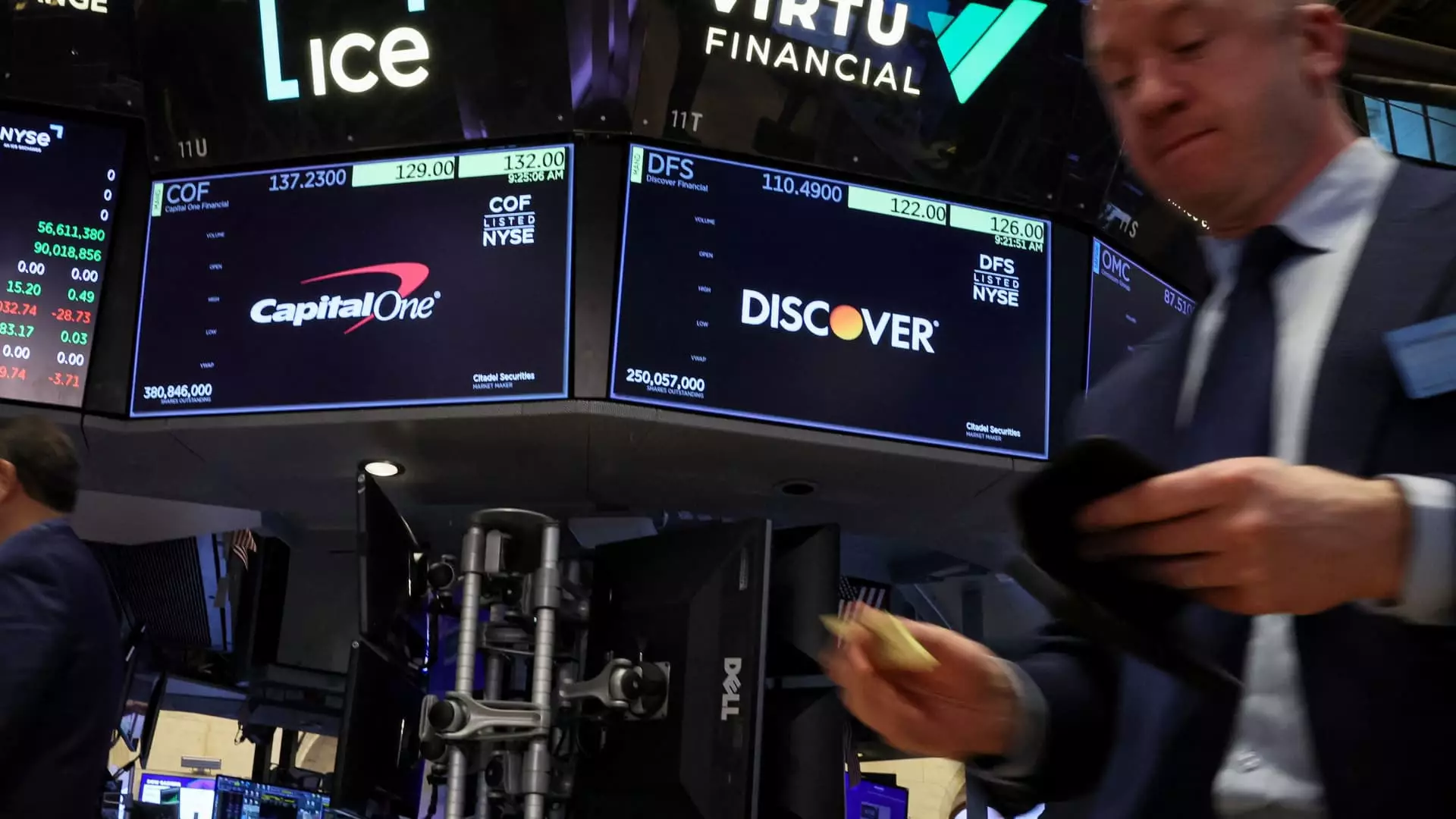The financial landscape is ever-shifting, and the potential merger between Capital One and Discover Financial Services has everyone talking. Analysts at BTIG recently posited that if the merger goes through, Capital One’s stock could skyrocket to $427 per share, a staggering 137% increase from its most recent closing price. This projection can be viewed as a reflection of the deep-seated optimism surrounding such transformations in the banking sector. The juxtaposition of these figures raises many questions: What will this merger mean for competition in the credit card industry? Is the optimism warranted, or is it merely an illusion driven by market hopes?
It’s crucial to note that BTIG’s assertion hinges on the belief that Capital One would effectively harness Discover’s underutilized payment network to seize significant market share among prime credit card consumers. For long-time investors in Discover, this is akin to striking gold in a prospect that previously seemed underwhelming. The implications for both companies are monumental, not just in terms of stock prices but also for the shifting dynamics in a market already dominated by giants like Visa and Mastercard.
The Standalone Strength of Capital One
Interestingly, the analysts maintain a bullish outlook on Capital One, even if the merger doesn’t materialize. With a price target defined at $208 per share, this represents a solid 15% upside from its recent performance. The rationale? Capital One has amassed substantial capital reserves since the announcement of the acquisition, which positions the company favorably for share buybacks. This maneuver could potentially increase earnings per share while further solidifying investors’ confidence.
Moreover, Capital One’s proactive measures during economic turbulence—such as tightening underwriting standards ahead of competitors—has fortified its position in an increasingly precarious consumer market. Unlike other financial institutions, Capital One has managed to encapsulate a resilience that could attract a broader base of customers looking for reliable credit avenues during uncertain times.
Regulatory Hurdles and Market Reactions
However, the road to merger completion isn’t without its bumps. Reports from the Justice Department, suggesting concerns regarding market concentration among subprime credit users, cast a shadow of doubt over the deal’s prospects. Critics argue that a merger of this magnitude could stifle competition, leading to higher costs for consumers in an already convoluted credit landscape. Capital One has retorted that this combination remains “well-positioned to gain approval,” a statement that underscores an unwavering commitment to compliance and regulatory adaptation.
Despite seeing a mild dip in stock value amid these reports, Capital One’s shares have rebounded remarkably. Since the alleged concerns came to light, the stock has appreciated nearly 6%, marking it as an outperformer in the broader financial sector. This resilience indicates a robust community of investors who believe in the company’s overarching strategy, even amidst fears stoked by government scrutiny.
A Complicated Landscape with Trump’s Legal Challenge
The landscape is further complicated by the legal showdown between Capital One and the Trump Organization over alleged violations of consumer protection laws post-January 6th. This lawsuit introduces an additional facet to Capital One’s narrative and evokes a broader conversation about the intersection of business practices and political discourse. It raises pressing questions about accountability in corporate governance and whether political motivations are seeping into financial decision-making.
Given the current climate, there are those who speculate that Capital One’s commitment to maintaining its ethical boundaries will play a decisive role in determining public support for its merger with Discover. The appearance of political bias, regardless of how unfounded it may be, could sway investor sentiment for the worse.
The Bigger Picture: A Transformational Opportunity
While some analysts approach the merger with apprehension, seeing potential antitrust issues as legitimate barriers, others remain enthusiastic about the possibilities ahead. Capital One’s ability to diversify its offerings through Discover’s established payment networks stands to not only enhance its competitive positioning but also improve overall consumer experience. The prospect of managed growth rising from strategic partnerships should bolster confidence among investors willing to confront today’s volatilities.
In a realm as dynamic as finance, the potential merger between Capital One and Discover Financial has emerged as a pivotal point. It represents both opportunity and challenge, a classic case study in adapting to a marketplace where consumer demands, regulatory responsibilities, and shareholder value are all vying for attention. In this high-stakes game, the players are acutely aware that informed decisions could very well dictate market trajectories. Whether this merger becomes a beacon of transformed growth or a cautionary tale remains to be seen, but the implications are profound for the future of personal finance.

